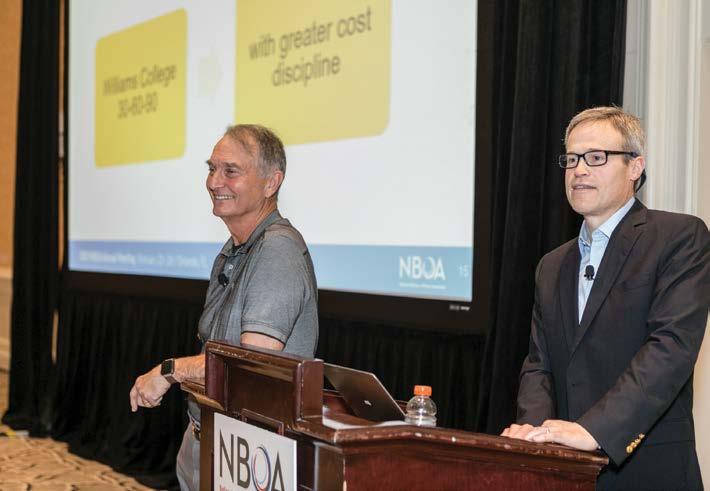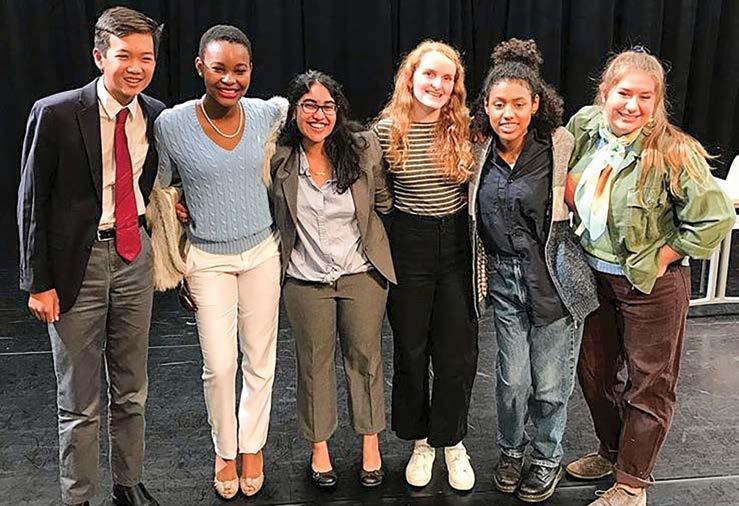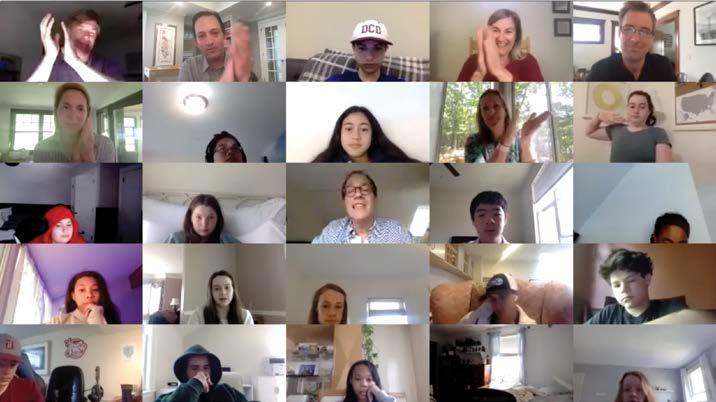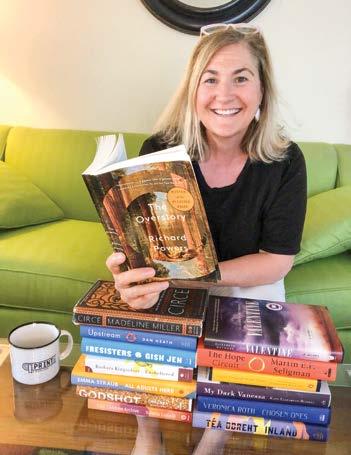Health and Wellness
Andrew W. Kendall ‘74
A Commitment to Developing Local Food Sources in the Face of a Global Pandemic By Leslie Bowen
F
ourth- and fifth-graders at DCD had an unusual visitor to their classrooms last year. Andrew (Andy) Kendall ’74, executive director of the Henry P. Kendall Foundation and former president of The Trustees of Reservations, arrived on campus with bags of lettuce to conduct a food experiment, having students try each kind in a blind taste test and give their opinion of which tasted better. Thankfully, our students are well versed in lettuce varieties from the rotating selections offered at the salad bar each day at lunch, so they participated enthusiastically in the test! Remarkably, 100 percent of them chose the lettuce grown locally over the conventional bag lettuce from California. “I hadn’t done it before, but it was a fun experience with them,” he said. “I asked them to describe it, touch it, taste it.” Andy’s goal was to prove a point: lettuce grown locally tastes way better than lettuce grown three thousand miles away in California. In New England, where the growing season is short and the land expensive, most of the lettuce we consume comes from this source. “By the time you bring it home, you only have a few days to consume it, compared with greenhouse-grown hydroponic lettuce grown 25 miles away, which lasts three weeks instead of three days because it doesn’t have to travel three weeks across the country,” he explained. He points out how the impact on the environment is lessened as well with this method of growing. “Lettuce grown inside uses a tenth of the water for irrigation, so there’s a much better use of water. Water comes off the roof from rain, so it’s a more sustainable product, and it tastes better. I can identify it anywhere in a restaurant. The conventional kind doesn’t stand up as well,” he said. Food became the focus of the Kendall Foundation once Andy took over the leadership reigns from his uncle and father. Established in the 1950s by his father, John Kendall ’40, and his uncle, Dr. Henry Kendall, a physics professor at MIT and the Nobel Prize-winning founder of the Union of Concerned Scientists, the foundation always had an envi-
ronmental orientation, with his uncle’s work advocating for sound science around the risks of nuclear power. The foundation later took up climate and energy and landscape and wildlife conservation. When his uncle passed away in 1999, Andy took a role on the board, and, in 2008, he took over the position of chair from his father. With this change in leadership, the foundation began to focus on food. Though not intentional, Andy’s life path shows an interesting progression over the years involving food. “I look back on various experiences jobs I’ve had since high school there is, in fact, a common thread of exposure to the food system. For example, during my senior year of high school, I lived and worked on a shrimp farm in Central America, one of the first of less than five agricultural enterprises at the time trying to grow shrimp. I went on from there to work at a seed manufacturing company right after college.” During his 12 years as president of The Trustees of Reservations, he led the development of a network of community farms and gardens across Massachusetts dedicated to the sustainable production of local food, now the largest private farm landowner in the state. “During my time there, I saw the essential and powerful connection between the farms and the 13















